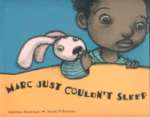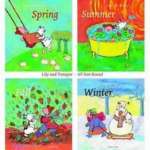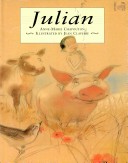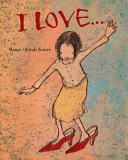
In long ago Persia a poor young man, following the advice of his betrothed, goes to the city to seek his fortune and finds it in an unexpected way.

In long ago Persia a poor young man, following the advice of his betrothed, goes to the city to seek his fortune and finds it in an unexpected way.

Ishaq, the son of the chief translator to the Caliph of ancient Baghdad, travels the world in search of precious books and manuscripts and brings them back to the great library known as the House of Wisdom.

How music came to the world is the subject of this folktale dating to pre-Columbian times. Retells a Mexican legend in which the sky god and the wind god bring music from Sun’s house to the Earth.

Each day, an ordinary man becomes a great adventurer when he goes to the library and reads about the Wild West, pirates, or a visit to the pyramids.

After she models for the artist and sculptor Edgar Degas, Marie feels transformed into a butterfly and becomes known all over the world as “The Little Dancer.”

Describes the efforts a mother goes through to help her young son, Marc, when he is too afraid to go to sleep.

Each season has its special joys and all are explored in the Lily and Trooper series, now combined into a single volume families can enjoy throughout the year.

When people make fun of his hair instead of listening to the beautiful music he plays on his flute, Julian finally decides not to pay any attention to them.

Jon lived with his father close by the sea. Every night Jon’s father went out to sea to fish, and every night, Jon stayed safely at home with the moon to keep him company. All was well until one night a storm raged, and a fugue wave stuck Jon’s father such a blow that it drove the spirit out of him. the spirit sank to the bottom of the seam leaving Jon’s father colorless and cold.

A girl describes all of her favorite things, from standing on her Papa’s feet as he dances around the room to chewing bubble gum until it is just right.